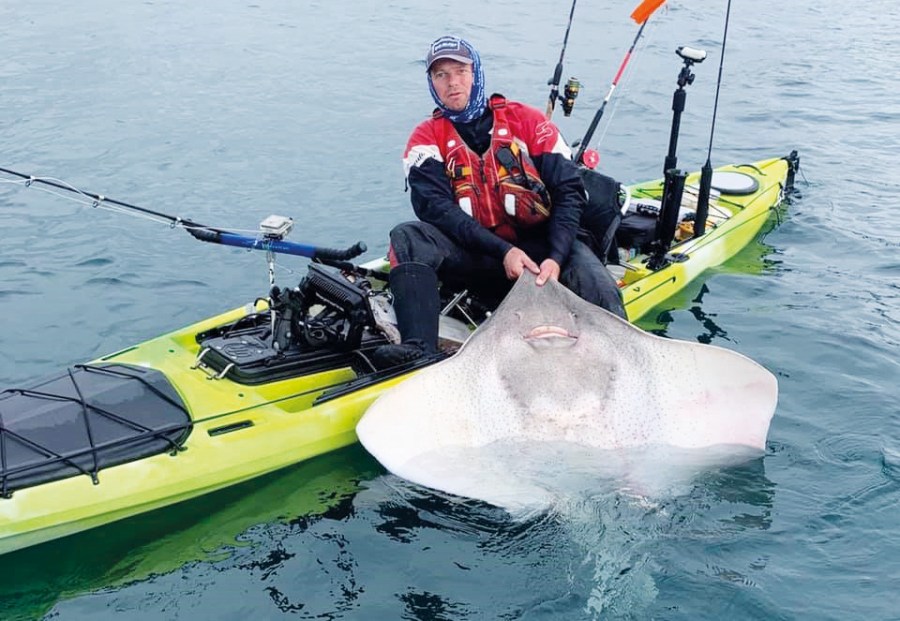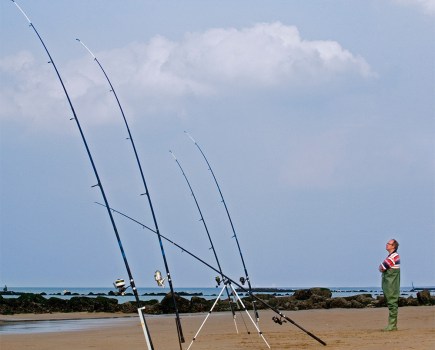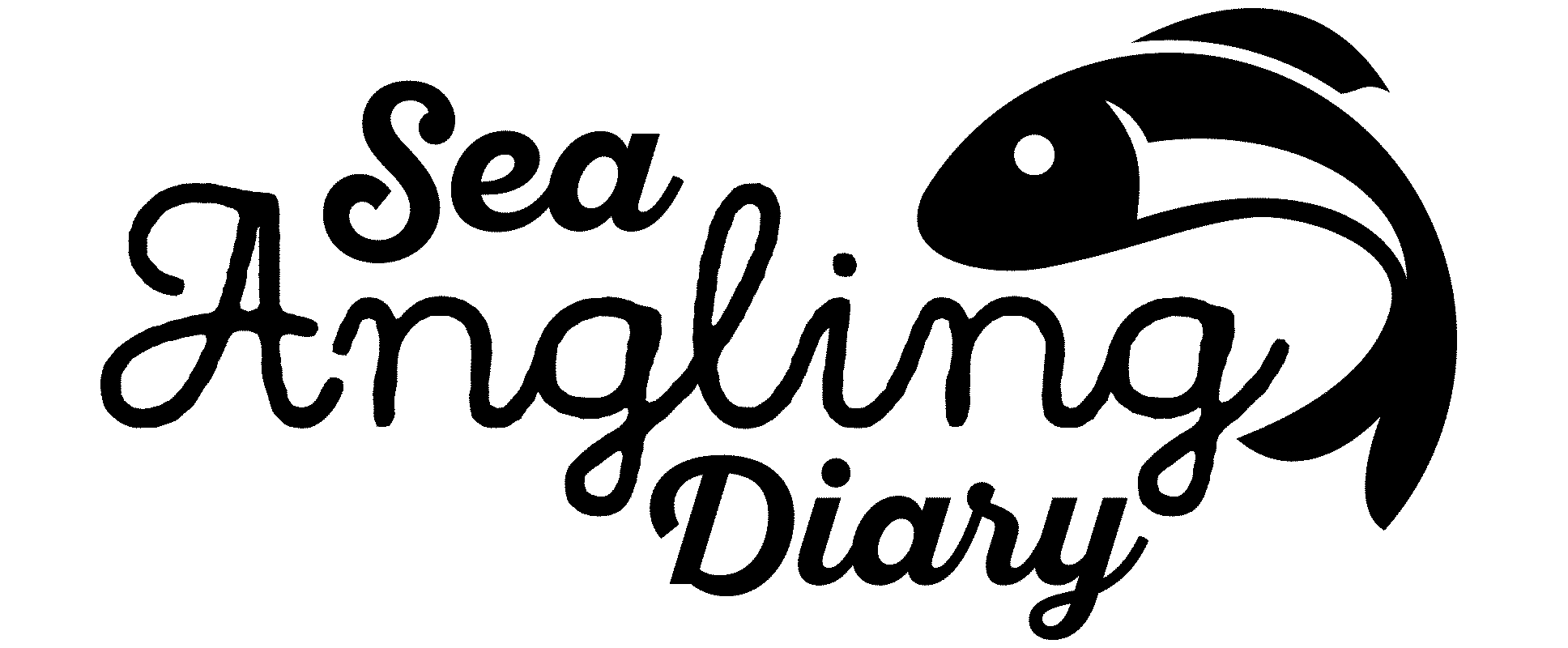 Sea anglers across the UK are being encouraged to join the Sea Angling Diary – a citizen science project which measures participation, catches and economic value in sea angling.
Sea anglers across the UK are being encouraged to join the Sea Angling Diary – a citizen science project which measures participation, catches and economic value in sea angling.
The project is now in its seventh year and is the longest continuous study of sea angling ever undertaken in the UK. The project is run on behalf of the UK and Welsh Governments and involves thousands of sea anglers using a free app to record details of their fishing sessions, catches and spending. This helps government and angling federations to develop sea angling and improve marine fisheries.
It is backed by a wealth of angling organisations – the Angling Trust, for the first time, the Welsh Federation of Sea Anglers, the Angling Trades Association, BASS and the National Mullet Club – as well as the Association of IFCAs and Institute of Fisheries Management. These organisations, along with Defra, Welsh Government and project deliverers Substance and Cefas, are calling for more sea anglers in England and Wales to take part in 2022.
Since 2016, over 5,000 sea anglers have joined the project, contributing data on over 48,000 sessions and 362,000 catch records from 216.000 hours of fishing activity.
What have they found?
Evidence from the Sea Angling Diary between 2016 and 2019 showed that:
Numbers fishing:
- On average 750,000 adults fish in the sea for recreation with a rod and line at least once each year – but there are some big variances in estimates from year to year due to survey methods and error margins.
- Sea anglers fished for a total of between 6-7 million days each year, fishing on average between 8 and 11 days per year.
Catches:
- The most caught species are whiting, mackerel, dogfish and bass.
- Estimates of total catches for all species in the UK each year range from 43-54 million fish but a whopping 80 per cent of these are released.
- Release rates for some species are 100 per cent; for bass were 94-98 per cent (2018-19); and even for mackerel can be as high as 35 per cent.
Economic Value:
- Total expenditure on sea angling activities and equipment (including travel and accommodation) was £1,108 in 2016 and £1,318 in 2017.
- This gave total direct expenditure estimates of £696 million in 2016 and £847 million in 2017.
- This resulted in a total economic impact of sea angling in 2016 of £1.58 billion, providing £326 million of Gross Value Added (GVA) and supporting almost 13600 jobs. Direct expenditure in 2017 was £1.94 billion, providing £388 million of GVA and supporting around 16300 jobs in 2017.
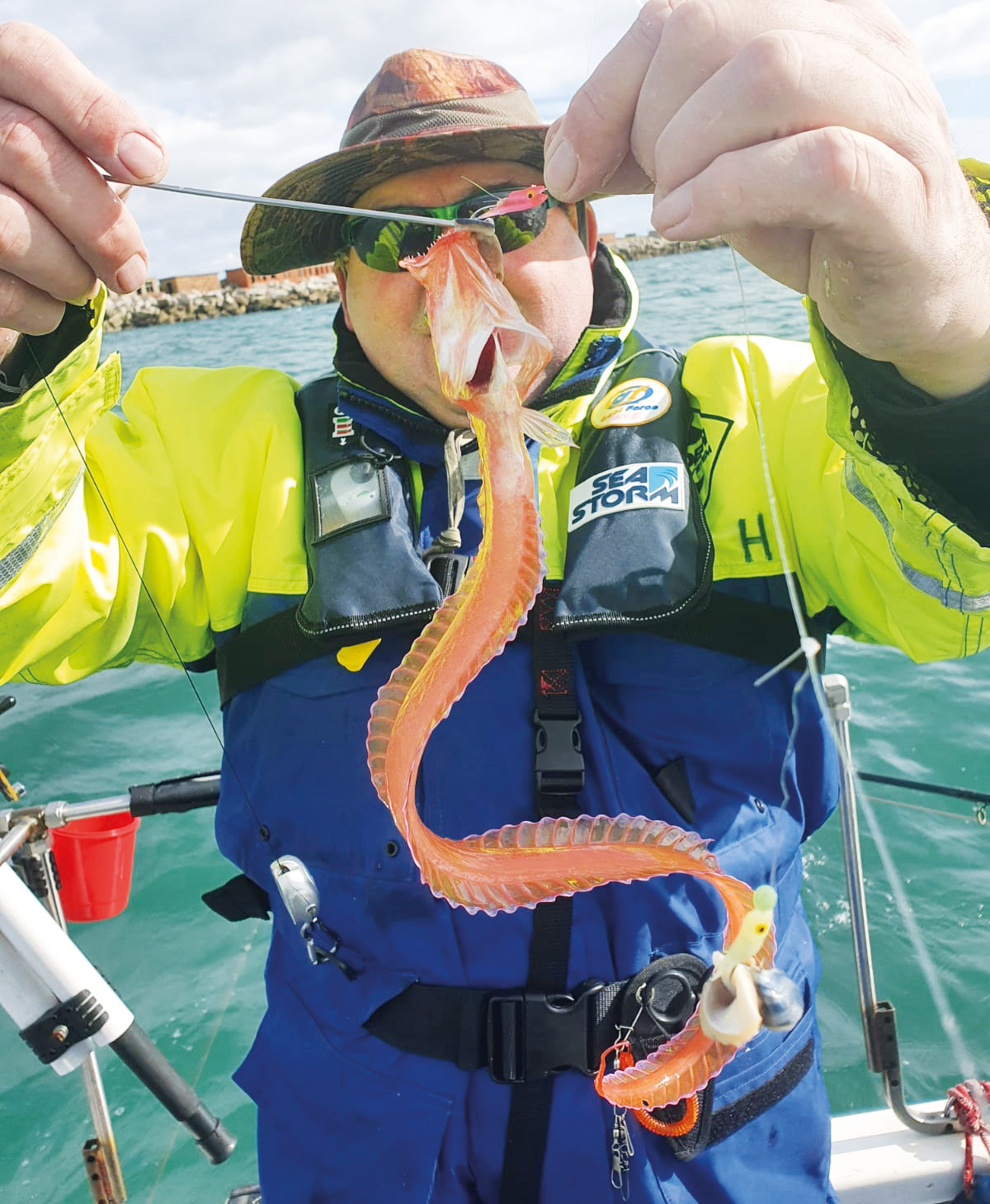
A red bandfish gets recorded
How you can help, and benefit!
In return for providing confidential information about fishing activity, catches and spending, sea anglers are not only volunteering as ‘citizen scientists’, but they also get a raft of goodies in return including:
- A free mobile app that records your locations, activity, methods, catches, weather and tide and photos. The app now includes the ability to track fishing activity ‘live’, with precise pinpoints of catches (visible to the user only). The app is free only to those signing up in Android and iOS. You also get a free waterproof phone case!
- A free catch recording kit including fish identification booklet, tape measure and waterproof notebook.
- An online dashboard of catches and sessions and an ‘Annual Report’ of your fishing.
- Monthly prize draws for tackle vouchers provided by Fishing Megastore, along with RNLI goody bags.
Specific app features – such as adding photographs auto-recording of recording of weather and tide conditions against fishing sessions – were developed from feedback from real anglers using the tool.
How is information protected?
Anglers have been consulted about the development of the project and app since its inception. One area of concern is obviously how their information is protected and whether it means disclosing your favourite marks. The Sea Angling Diary tool has been developed with that in mind – detailed information about fishing sites and catches are never shared, any sessions that anglers choose to share are only done so with other diarists and even there, fishing locations are given as 5km areas – never specific marks. All data is handled under the strictest GDPR conditions.
Adam Brown, Head of Research at Substance, which is running the project, said: ‘We are delighted to now be working closely with both the Angling Trust in England and the Welsh Federation of Sea Anglers in Wales to deliver an improved Sea Angling Diary project. It’s an exciting opportunity for the project to expand and put evidence from anglers themselves centre stage.’ More anglers using the Sea Angling Diary will help demonstrate the value and impact of sea angling in the UK. This is more important than ever now that sea angling is (for the first time) recognised and embedded in the Fisheries Act. Public funding has been provided to support the recreational sea fishing sector, so the better the picture is, the more effective this development will be.
Kieran Hyder is an expert on recreational fisheries research at the Centre for Fisheries, Aquaculture and Environmental Science, which is a partner in the project. “Robust data on sea angling is vital to ensure that the needs of sea anglers are accounted for in fisheries management. Partnership with the Angling Trust in England on the Sea Angling Diary is a fantastic opportunity as it will improve data quality, increase the numbers of English sea anglers that contribute, and maximise the value of the outputs.’
FISHERIES ACT 2020?
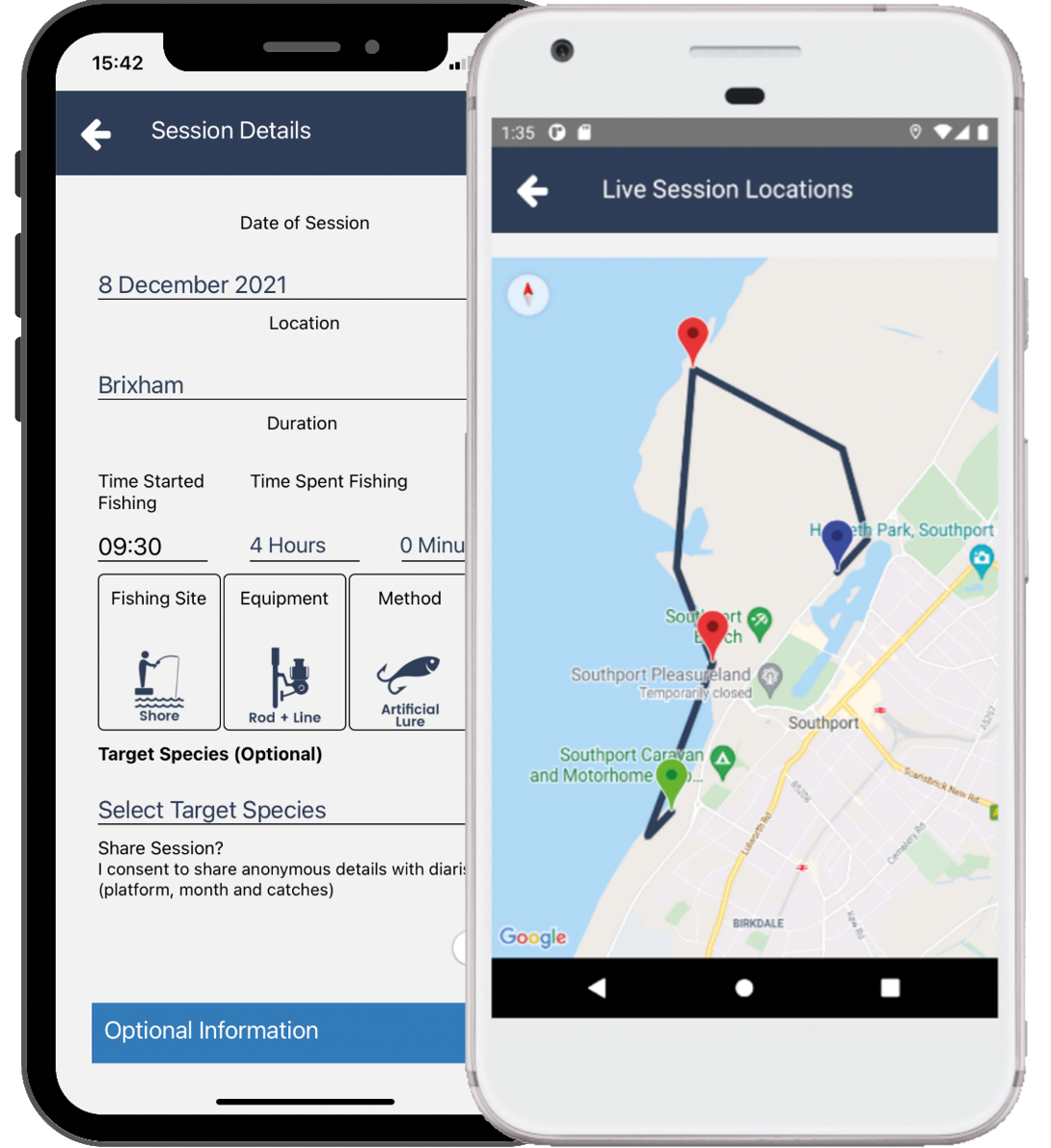 The new UK Fisheries Act allows the UK to manage its fisheries now the UK is no longer part of the EU’s Common Fisheries Policy.
The new UK Fisheries Act allows the UK to manage its fisheries now the UK is no longer part of the EU’s Common Fisheries Policy.
Recreational fishing is recognised as a stakeholder in the new Act and, for the first time, recreational anglers will have a say over how UK fish stocks are managed. Recreational fishing will also qualify for funding to help promote and develop it.
Data from the diary project will help anglers, fisheries managers, and the government, understand what it is anglers catch, what angling needs, and what impact it is having.
Make you catch count here:
www.seaangling.org.

